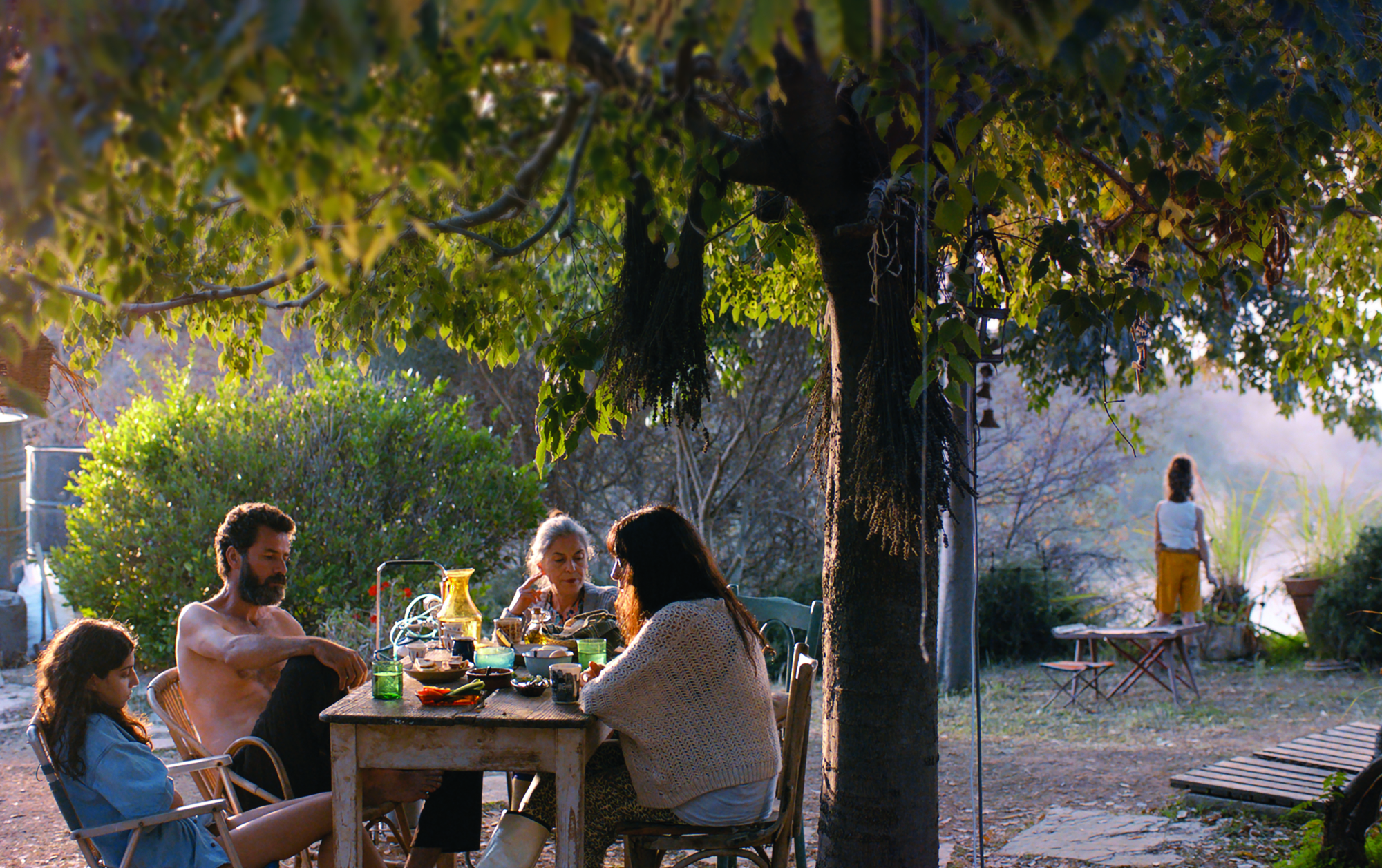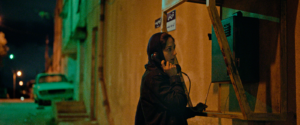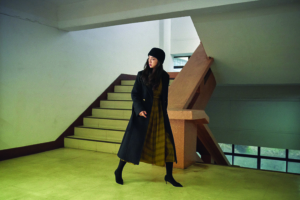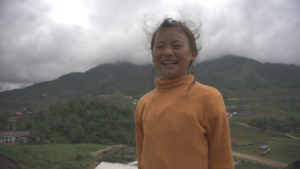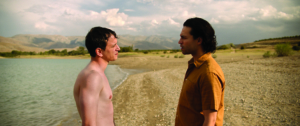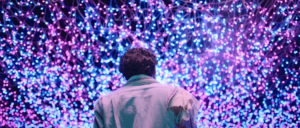On 3 August 2020, Mounia Akl’s debut feature, Costa Brava, Lebanon (2021), officially went into production. Building on her Cannes Film Festival–selected short film Submarine (2016), the Lebanese filmmaker had again chosen to set a symbolic fable against the backdrop of the garbage crisis that has plagued her homeland since 2015.[1]See Sophia Smith Galer, ‘Lebanon Is Drowning in Its Own Waste’, BBC Future, 28 March 2018, <https://www.bbc.com/future/article/20180328-lebanon-is-drowning-in-its-own-waste>, accessed 3 August 2022.
Then, the next day, the Port of Beirut explosions occurred, in which an accidental detonation at the city’s harbour blew through the city, leaving over 200 dead and an estimated 300,000 people homeless; shock waves from the blasts were felt as far away as Cyprus.[2]See Austin Ramzy & Elian Peltier, ‘What We Know and Don’t Know About the Beirut Explosions’, The New York Times, updated 14 October 2021, <https://www.nytimes.com/2020/08/05/world/middleeast/beirut-explosion-what-happened.html>, accessed 3 August 2022. ‘We were in the office, and it collapsed on us,’ recalls the 33-year-old filmmaker, describing the production team’s firsthand experience of a day that affected so many. A couple of months later, still dealing with the after-effects, they picked up the pieces and returned to work. ‘Basically, it was a group of people dealing with PTSD and grief deciding to make a film together because they needed a moment of community,’ the director explains. ‘It really gave us purpose in a moment in which we couldn’t find any […] It gave us strength, to know that we had an objective.’
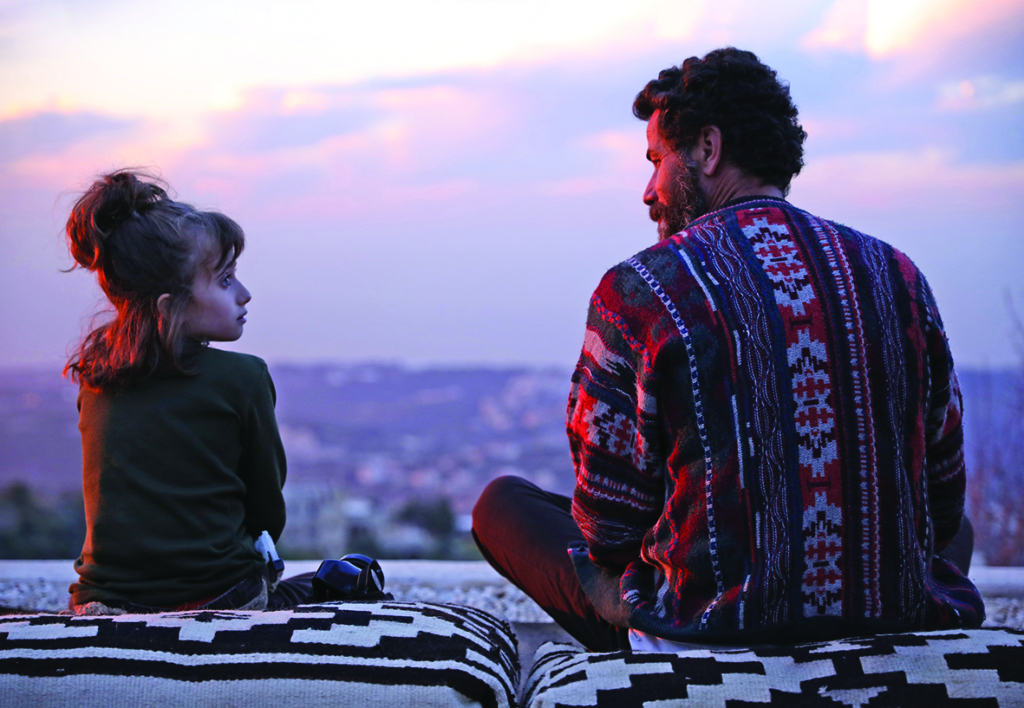
The production was already going to be a logistical minefield – this was in the early stages of the first wave of the COVID-19 pandemic in the country, before any vaccines had been made available – but after the explosion and Lebanon’s subsequent financial collapse, monies were lost, and filming became even more difficult as a result. Yet Akl feels there was an undeniable power in the production being a place for so many of the cast and crew members to funnel their emotions, with added resonance coming from the tale she was telling. ‘The filming became a mirror of the story of the film,’ she says.
Akl feels there was an undeniable power in the production being a place for so many of the cast and crew members to funnel their emotions, with added resonance coming from the tale she was telling.
Costa Brava, Lebanon is set ‘in a near future’ (as stated by a vague opening intertitle), but its dystopia feels wholly contemporary. ‘Between the time I wrote the script, which was set in a dystopian 2030, and when I began filming it in 2020, the reality of the country had become worse than this dystopia that I had imagined,’ Akl notes.
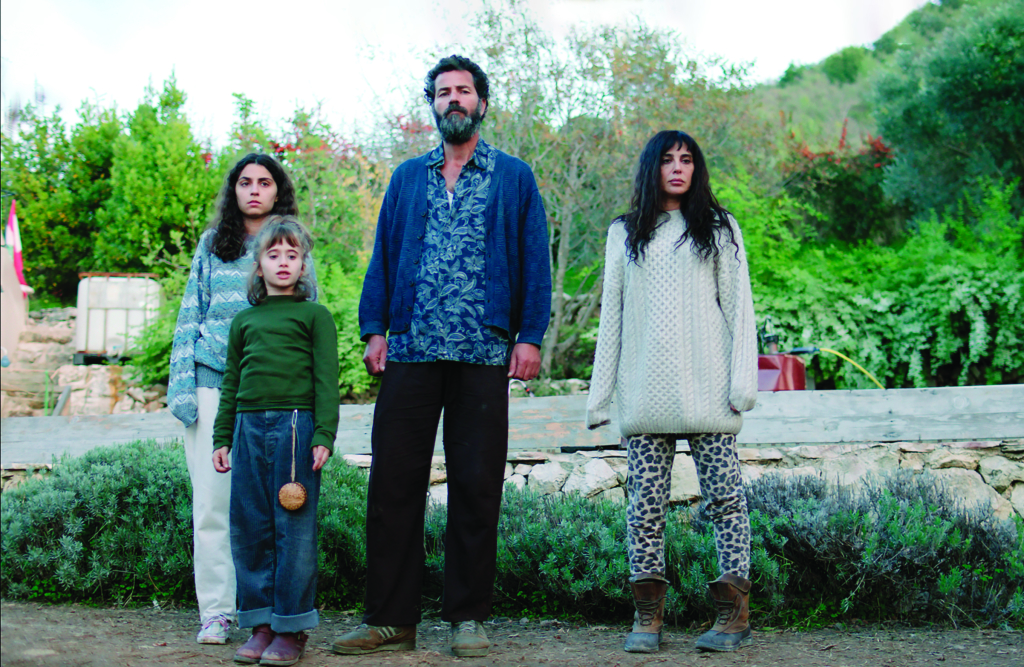
Her film follows a family from Beirut who have withdrawn from society to live in an off-the-grid property in the bucolic hills. This location is a self-contained world for the children – seventeen-year-old Tala (Nadia Charbel) and nine-year-old Rim (played by twins Ceana and Geana Restom), who’ve spent most of their lives on the remote, wi-fi-free homestead – as well as for their arch, ailing grandmother, Zeina (Liliane Chacar Khoury), who’s begrudgingly landed there to see out her final days in the healing mountain air. The home is the dream of former activist Walid Badri (Saleh Bakri) and his wife, Souraya (Nadine Labaki), a popular protest singer who has retired from public life (‘Dear Beirut, I bruise as easily as you do,’ she sings to the girls in one scene). This self-sustained existence is staged as the couple’s grandest protest: by retreating to their own utopia, they’ve attempted to divorce themselves from the dystopia of corrupt, collapsing contemporary Lebanon.
Yet no-one can truly escape the society in which they live, and, soon enough, the ills that ail Lebanon show up on their doorstep. In a rude awakening, the family discover that the government is set on turning a neighbouring plot of land into landfill in order to help ease the continuing garbage crisis. The land has secretly been sold to the authorities by Walid’s sister, Alia (Yumna Marwan), an expat businesswoman who has an oft-combative relationship with both her brother and her homeland. Walid and his family initially attempt to ignore the development (taking an alfresco breakfast in the face of heavy machinery), then protest, then undermine the operation. But soon the mountains of rubbish begin piling up just behind the fence line, spoiling the idyllic hillside environment, rupturing the borders of the Badris’ escapist enclave and poisoning the family dynamic.
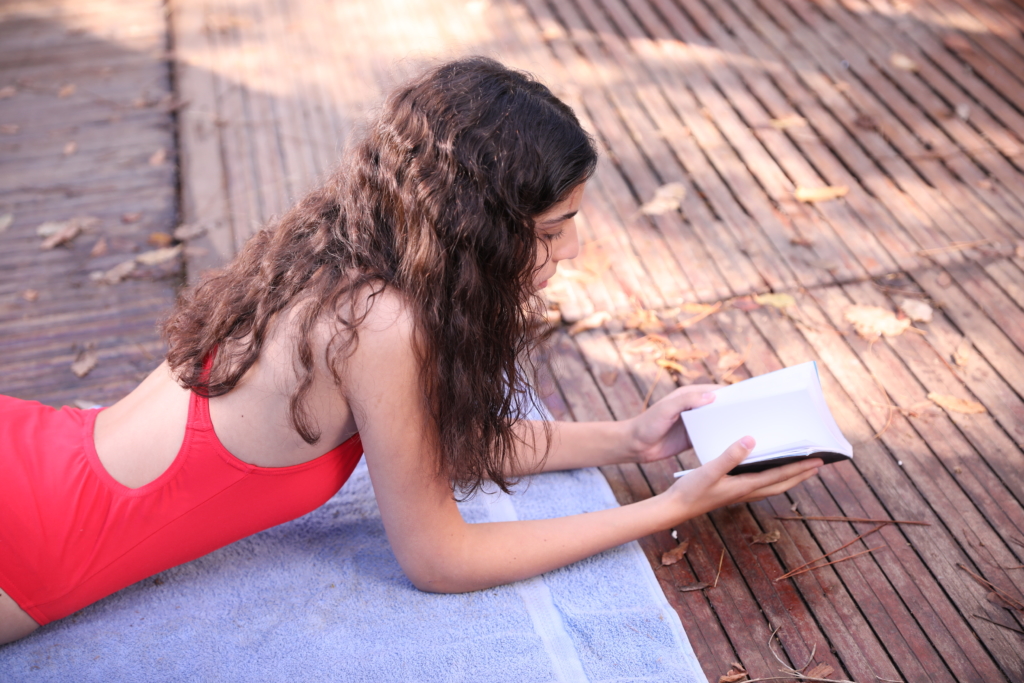
The drama was born, Akl explains, from her ‘desire to talk about this toxic relationship’ between citizens and country, in which people ‘held hostage by a corrupt government’ harbour a ‘love–hate’ feeling towards their homeland – a relationship that, after revolution, economic crash, COVID and the Beirut explosions (a tragedy with roots in mismanagement, corruption and lax regulation[3]See Bassem Mroue, ‘2 Years Later, Hope for Justice in Beirut Explosion Fades’, The Washington Post, 1 August 2022, <https://www.washingtonpost.com/world/2-years-later-hope-for-justice-in-beirut-explosion-fades/2022/08/01/389447e4-1161-11ed-8482-06c1c84ce8f2_story.html>, accessed 3 August 2022.), is growing ever more painful. ‘This city, which is full of life and lovely people, keeps on receiving hits and hits and hits,’ the director describes. Costa Brava, Lebanon seizes on rubbish as a sure symbol, both dramatically and politically: ‘The garbage crisis of 2015, which was the result of years of political corruption, felt like the perfect allegory for everything that is wrong with the country,’ Akl says. ‘The friction between this political and environmental invasion […] became something that I wanted to explore.’
Costa Brava, Lebanon immediately creates a strong counterpoint by beginning with images and sounds of garbage crisis, air pollution and protest (‘Beirut has become a living hell [and] people are struggling to escape their harsh reality,’ a news report intones) before moving to the mountains, where the family feed chickens, pick vegetables, tend to the garden, maintain the swimming pool. Also transported from the chaotic city to the peaceful country is a statue of the country’s (fictional) president, installed to watch over the new landfill, heralding a symbol of his political power. ‘Lebanon will now be clean,’ he announces at a press conference, boasting of French investment in the project. The new site is promised to be ecologically sound and to herald a new age; yet, instead of some glittering waste facility, it ultimately amounts to a half-dug hole set loose by a detonation (which rings out, eerily) and serviced by trucks streaming in to dump rubbish. The mountains of refuse are eventually set on fire, producing black clouds of noxious smoke, killing the local birdlife. In a more fantastical touch, the family’s swimming pool turns into a cesspool, the water seemingly stained with blood.
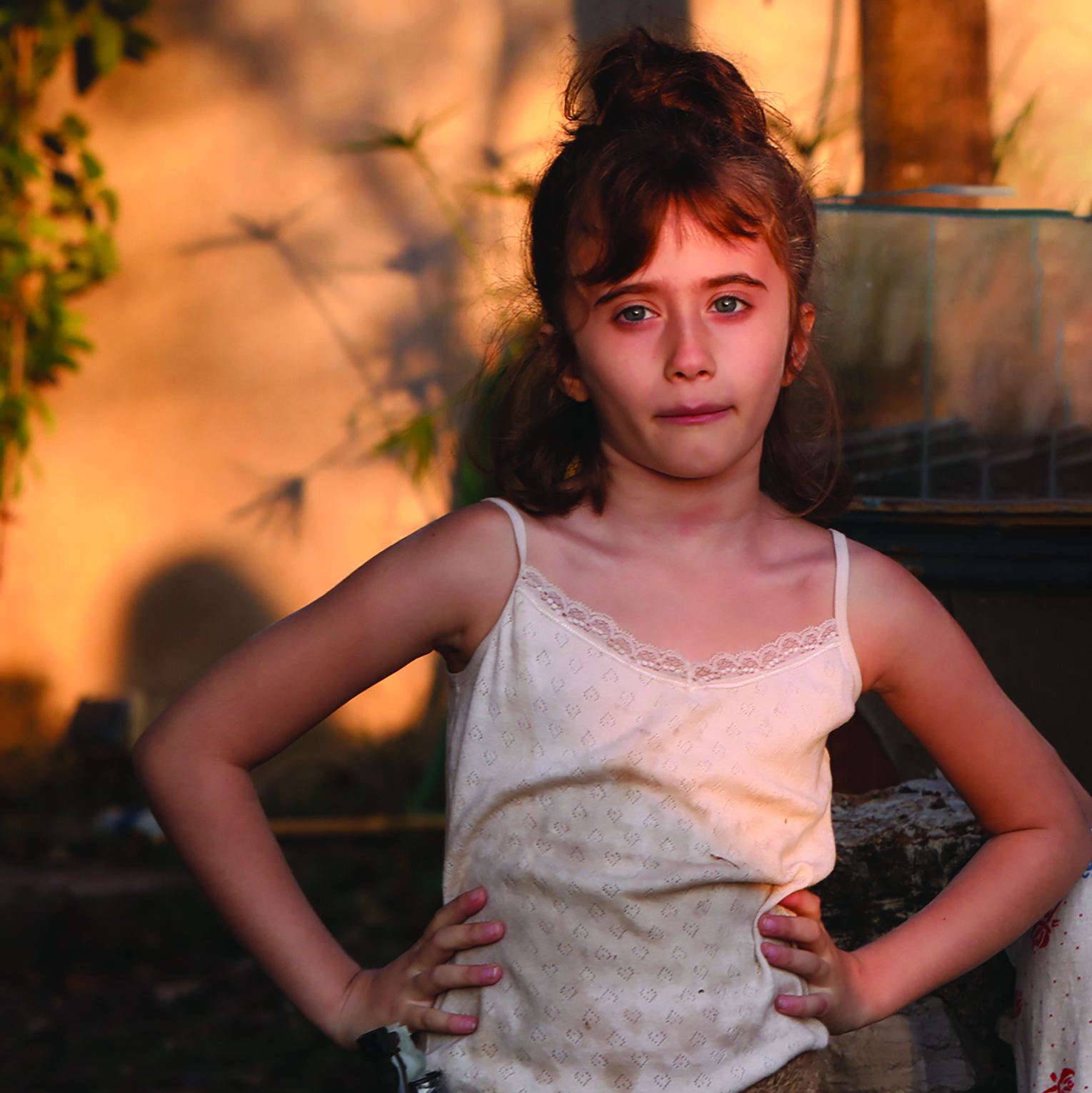
Walid sees this as a fight, soliciting legal help and hoping to contact the international press – but, from the moment the first bulldozer arrives, it’s clearly a losing battle. There’s no obvious opposition, just mounting piles of trash. The manager of the project, Tarek (François Nour), is young and charming, and captures the awakening attentions of Tala, whose adolescence has hitherto been entirely sheltered. The workers who file through are just men doing a job. Even the president is merely some face on a news report, far removed from the visceral horrors of the landfill. Akl never depicts a villain, just the pressing weight of systemic power: a slow, sinking feeling of inevitability.
Souraya, who is already filled with nostalgia for the days in which she was the voice of protests (‘We had so many beautiful dreams, we had so much hope, we dreamt of changing the world, but we lost everything’), wants the family to cut their losses and return to Beirut. As she and Walid argue, the conflict clarifies the film’s themes. ‘We’ve been isolated here for eight years,’ Souraya laments. ‘Where will we run away to this time?’ She cites an initial agreement the couple made that they would leave their rural property if unhappy – and, she points out, living next door to a toxic tip clearly qualifies. Walid is steadfast, though, refusing to return to the city from which they fled: ‘Beirut will never get better, even if an army bleached its streets for years.’ She ultimately challenges him – ‘You should decide whether you love or hate this country’ – with the subtext being that Walid is more like a wealthy older man fighting to preserve what he has than a principled, politically minded refusenik agitating against the powers that be. The fact that he had a family property to flee to, and the ability to set up their house, marks him and his wife as people of means. And this has obvious echoes in real life; most people don’t have the option of withdrawing from society, let alone living in style. This is a perennial theme in the realm of politics: what creates change is active engagement, not horrified people sidelining themselves from social realities. Akl reiterates this point: ‘Running away from our problems often results in them catching up with us, because running away is rooted in fear.’
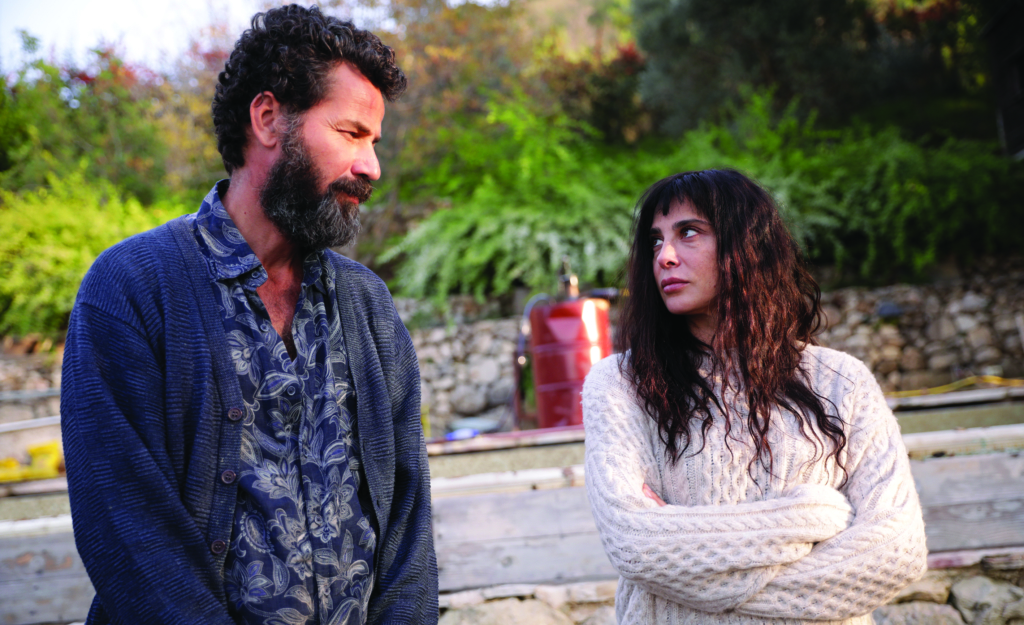
With Costa Brava, Lebanon, the filmmaker is using the family as a microcosm of Lebanon. In this context, the largely absent but nonetheless very present Alia – who lives and works in Colombia, and sees herself as a progressive contrast to her homeland’s dated ways – is a hugely symbolic figure, embodying the vast multitude of Lebanese expats. Walid mocks his sister as ‘someone who leaves then says how much they love Lebanon on social media’, but her withdrawal from the country is just a different variation on his own actions. ‘In Lebanon, you have many, many waves of people leaving,’ Akl says; the director herself has studied and lived abroad. ‘The Lebanese person finds themselves in a situation of: what do you do when your homeland feels unsafe, when it’s holding you hostage and taking away your dignity?’ she suggests. ‘Do you save your own skin and leave, even though it’s a place you adore? Or do you integrate and try to be part of change?’
The director doesn’t believe that expats are unable to participate in social change, citing the ‘biggest ever turnout of expat voting’ in the 2022 general election[4]See ‘Lebanon Overseas Voter Turnout Hits 60 Per Cent Before Sunday Poll’, The National, 9 May 2022, <https://www.thenationalnews.com/mena/lebanon/2022/05/09/lebanon-overseas-voter-turnout-hits-60-per-cent-ahead-of-sunday-poll/>, accessed 3 August 2022. as an example of active, ongoing engagement. When attending screenings of Costa Brava, Lebanon at festivals around the world, Akl says she routinely finds herself talking to people from the diaspora, who are often seeing the film out of nostalgia for their homeland, only to end up finding themselves hugely engaged with the themes. In the film, Alia eventually transitions from figure on FaceTime to returnee when she arrives at the family home following the death of her mother, Zeina, who collapses amid bags of rubbish, succumbing to smoke fumes (but not before telling her younger granddaughter to ‘stop taking life so seriously’). Zeina’s death is the ultimate rupture of the Badri family idyll, the marker of a battle lost.
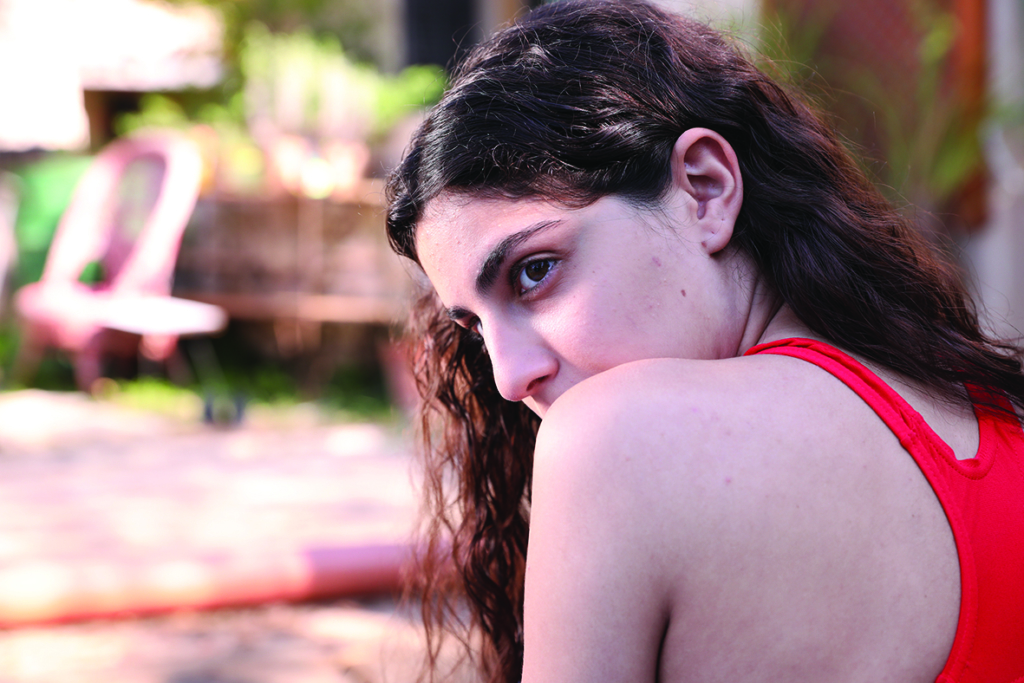
Souraya finally snaps, yelling, ‘You’ve trapped us; we’re rotting here!’ at her husband. She takes off with Tala the morning after Zeina’s funeral, coincidentally just as protesters finally arrive at the rubbish dump. Rim refuses to go with them, angry at her mother and sister for abandoning the family, their dream. But later, in their absence, at a loss for what to do with her newly lonesome time, Rim packs her own bag and goes walking off through the trash. Walid, the final holdout, finally has to leave in panicked search of his young daughter. He soon finds her, but doesn’t bring her back home; instead, the pair start driving towards Beirut, the sinful city that Rim has never seen. ‘[I choose] to end the film with this young kid heading towards Beirut, in motion, trying to face her fears and see the city that she’s never seen before,’ Akl explains. ‘This is me saying that the fight is worth it for the youth of Lebanon.’
In her initial drafts of the script, Akl had penned a darker, more dystopian ending. But after all that the Lebanese people, including the cast and crew, had recently suffered, she wanted to end the film on a feeling of hope.
In her initial drafts of the script – written before the 17 October Revolution in 2019, and before the trauma of the Beirut explosions – Akl had penned a darker, more dystopian ending. But after all that the Lebanese people, including the cast and crew, had recently suffered, she wanted to end the film on a feeling of hope: ‘I decided to end it on Rim’s face – this new generation going to create a new Beirut for themselves, excited and scared at the same time.’ Hope was something that the director felt was palpable on set, where people were channelling their pain and frustrations into the making of art, healing along the way.
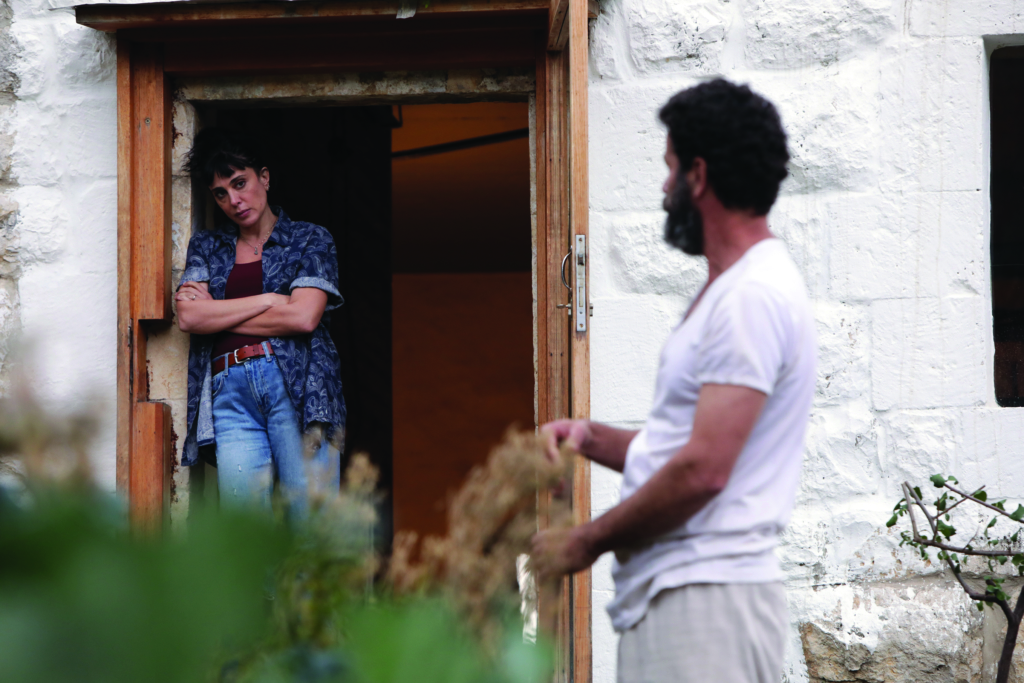
‘There was a lot of energy put into the shoot, because for people it was about resisting, and more than just a film,’ Akl recounts. ‘It was a film crew in the mountains creating beauty, joy and creativity as a form of freedom, at a moment [when] it felt like, outside this world we were creating, we were living in a dystopia.’ The feeling of ‘love’ on set changed the tenor of the finished film, she believes; Costa Brava, Lebanon moved more towards representing the humanity of its symbolic family figures than the horrors of its dysfunctional setting. She found herself identifying more with each of the characters: Walid’s efforts to create a sanctuary in a time of fear; Souraya’s nostalgia for Beirut in better days; the children’s longing to break out of a life of restrictions; the growing collective desire among the family to leave comfortable stasis behind and agitate for difficult change.
In a gesture that is easy to miss on screen but was huge for those involved with the production, Akl had make-up artists apply scars to Walid and Souraya resembling those of crew members; the intended suggestion was that these characters, too, had suffered in the Beirut blasts, that they wore the reminders of the troubled times in which Costa Brava, Lebanon was being made. This gave the characters further depth and history; but, mostly, it added to the feeling among the cast and crew that the production was a healing process. ‘The fact that we had suffered so much made [everyone] so much warmer on set,’ Akl says. ‘It felt like: “We have a chance at life, now, after we almost died.”’
Endnotes
| 1 | See Sophia Smith Galer, ‘Lebanon Is Drowning in Its Own Waste’, BBC Future, 28 March 2018, <https://www.bbc.com/future/article/20180328-lebanon-is-drowning-in-its-own-waste>, accessed 3 August 2022. |
|---|---|
| 2 | See Austin Ramzy & Elian Peltier, ‘What We Know and Don’t Know About the Beirut Explosions’, The New York Times, updated 14 October 2021, <https://www.nytimes.com/2020/08/05/world/middleeast/beirut-explosion-what-happened.html>, accessed 3 August 2022. |
| 3 | See Bassem Mroue, ‘2 Years Later, Hope for Justice in Beirut Explosion Fades’, The Washington Post, 1 August 2022, <https://www.washingtonpost.com/world/2-years-later-hope-for-justice-in-beirut-explosion-fades/2022/08/01/389447e4-1161-11ed-8482-06c1c84ce8f2_story.html>, accessed 3 August 2022. |
| 4 | See ‘Lebanon Overseas Voter Turnout Hits 60 Per Cent Before Sunday Poll’, The National, 9 May 2022, <https://www.thenationalnews.com/mena/lebanon/2022/05/09/lebanon-overseas-voter-turnout-hits-60-per-cent-ahead-of-sunday-poll/>, accessed 3 August 2022. |
